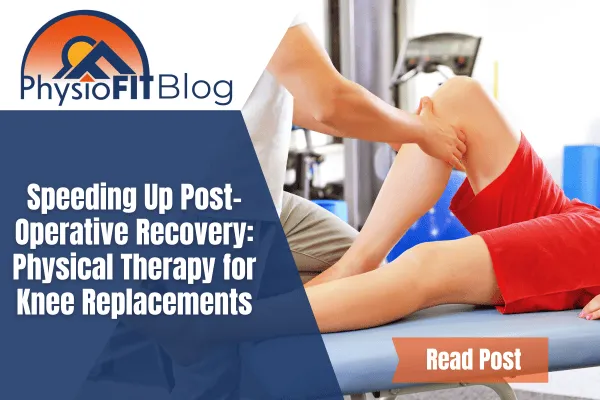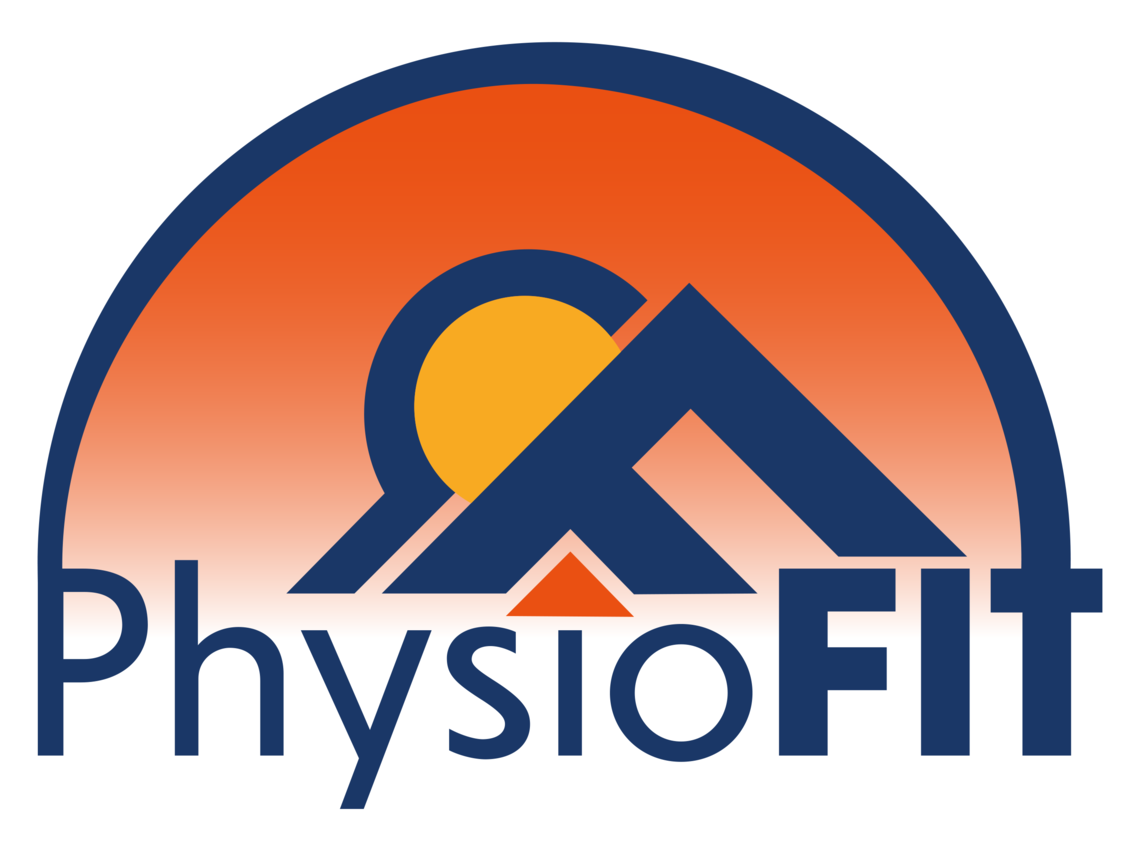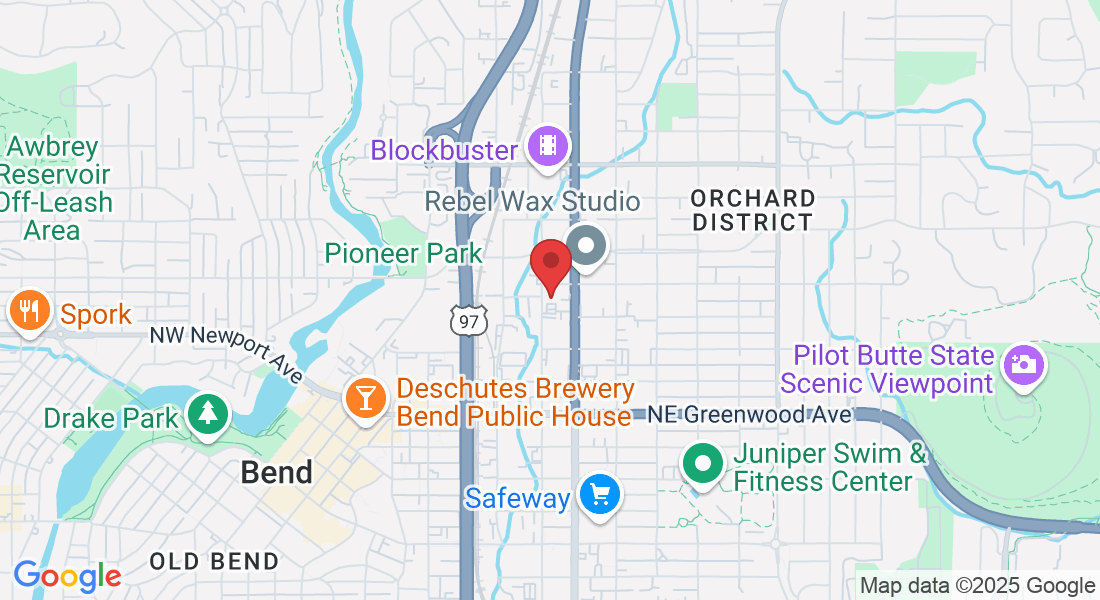Neck Pain Relief
Living Life Shouldn't Be Such a Pain in the Neck
Are you one among the millions experiencing "neck pain" and seeking relief? Neck pain is an everyday battle for roughly 10-20% of U.S. adults, leading to work absences, diminished life quality, and restricted physical activities. Consider us your guide, providing essential knowledge about neck pain and illustrating how we can assist you in restoring your well-being.
At PhysioFit, we are committed to delivering well-rounded neck pain treatments, expertly designed to align with every patient's specific condition and requirements. Our practice is rooted in a science-based, exercise-centric methodology of physical therapy, centered around individualized care plans for pain relief. Our vision transcends the mere alleviation of your neck discomfort; we strive to enhance your holistic health, diminish the chance of chronic or recurrent pain, and expedite your return to your routine activities.
What You Should Know
The most frequent injury resulting from car accidents is neck pain, accounting for nearly half, or 49%, of all vehicular injury cases.
Persistent neck pain may cause an array of complications, including depression, tension in relationships, anxiety, issues at work, hindrance in day-to-day tasks, and excessive tiredness.
Neck discomfort ranks third as a source of chronic pain.
A proper diagnosis of a neck problem involves a thorough evaluation from a professional.

The Most Common Causes of Neck Pain
Neck pain, a common complaint that can arise from various sources, often disturbs the delicate balance of daily life. Whether it's the natural aging process, physical strain, mental stress, traumatic injury, abnormal growths, or an underlying health condition, the origin of neck pain can be multifaceted. Understanding these potential causes is a crucial step towards effective treatment and relief.
Neck discomfort can be attributed to several factors:
Age-related Deterioration: Aging can lead to natural wear and tear of the cervical spine, leading to degenerative conditions like osteoarthritis or spinal stenosis, which can provoke neck pain. Persistent stress and repeated movements can weaken spinal disks, potentially causing a herniated disk or a pinched nerve.
Physical Exertion: Repetitive or strenuous activities can overstrain neck muscles, resulting in stiffness and pain. Factors like poor posture, weak abdominal muscles, and excess body weight can misalign the spine, contributing to neck discomfort. Long hours spent in front of a computer, straining the neck, is a common contributor to neck pain.
Psychological Stress: Stress-induced muscle tightening can lead to neck stiffness and pain. Many individuals may unconsciously tense their neck muscles during periods of stress or agitation, only realizing it when the neck begins to hurt.
Injury: Trauma can damage muscles, ligaments, disks, vertebral joints, and nerve roots in the spinal cord, causing neck pain. Whiplash, a common neck injury resulting from car accidents, often leads to neck discomfort.
Abnormal Growths: Tumors, cysts, and bone spurs can exert pressure on neck nerves, inducing pain.
Underlying Health Conditions: Certain health conditions, including meningitis, rheumatoid arthritis, and cancer, may present neck pain as a symptom.
If any of this information resonates with your current situation, we urge you to schedule an appointment with us immediately. Don't let hip pain diminish your life quality - allow us to help you embark on the path to relief today.
Strategies for Negating Neck Pain
Strategies can be implemented to mitigate neck discomfort related to muscle strain or tension. They are as follows:
Adopt Healthy Posture Habits: Arrange your devices such as computers and phones to prevent neck strain or slouching while using them. Ensure your shoulders are aligned, your back is straight while seated, and your neck isn't strained. Fine-tune your car seats for proper posture during transit.
Optimize Your Sleeping Position: Retain good posture even during sleep. Use a pillow for head support to align your head and neck with your body if you sleep on your side or back. For back sleepers, consider placing a pillow under your knees to lessen lower back pressure. Avoid stomach sleeping with a turned head.
Stay Mobile: Utilize exercises meant for neck pain relief to also prevent it. If your job requires prolonged sitting, incorporate occasional breaks for stretching and mobilizing, including neck muscles.
Avoid Shoulder-Borne Heavy Loads: Refrain from carrying substantial weights like book bags or suitcases on your shoulder. Opt for wheeled luggage or bags instead.
Strengthen Your Upper Back Extensor Muscles: Age-related weakening of the upper back is normal, causing the shoulders to stoop and the head to tilt forward. This posture puts extra strain on your neck and upper back.

Common Symptoms of Neck Pain
Experiencing headaches
Sensation of numbness or a tingling feeling, akin to 'pins and needles', in your shoulders or arms.
Inability to rotate the neck or incline the head
Rigidity in the neck, shoulder, and upper back regions
A radiating pain extending from the neck down to the shoulders or arms
An intense sensation of stabbing or burning
A continuous, nagging discomfort
Remember, if you resonate with any of the symptoms or conditions mentioned, we highly recommend making an appointment with us for a thorough evaluation and personalized treatment plan.
Please Note: The information provided on our website is intended for general education and is not a substitute for professional medical advice. Each individual's situation and body is different. Therefore, what may work for one person may not work for another. We care about your well-being and advise you to reach out to us to discuss your specific needs before implementing any advice from our website.
Your Source for All Things Physical Therapy in Bend Oregon
The PhysioBlog

Speeding Up Post-Operative Recovery: Physical Therapy for Knee Replacements
Introduction
When knee pain dominates your life, knee replacement surgery can be a last resort when seeking relief. But, let's not forget - the journey doesn't stop at the operating room. Indeed, it extends further, with successful recovery hinged on a robust rehabilitation plan. With decades of experience, we at PhysioFIT understand this journey inside and out. We offer custom-tailored physical therapy that is designed to expedite your recovery and get you back on your feet—literally.
Why Physical Therapy is Essential After Knee Replacement
Physical therapy is the backbone of recovery, post-knee replacement. It's the catalyst that drives knee mobility, muscle strength, and most importantly functionality. Moreover, it acts as the key to unlocking your routine activities sooner, and with less discomfort. You might be wondering, "How can I speed up my recovery after knee replacement?" The answer lies in a well-structured, professionally guided physiotherapy program. And at PhysioFIT, that’s exactly what we do to help you rebound quickly and bounce back better than ever.
Unraveling the Complexities of Knee Replacement Surgery
Before we dive into the recovery, let's take a quick look at what exactly happens during a knee replacement surgery:
Knee Replacement Surgery: An Inside Look
Also known as a total knee arthroplasty (TKA), knee replacement surgery involves replacing damaged parts of your knee with medical grade hardware designed to mimic your natural architecture. A surgeon’s go to for individuals with severe knee damage that disrupts daily activities. A procedure that can be a game-changer for those that truly need it.
The Initial Stages of Post-Operative Care
When the surgery is complete, the initial focus shifts to healing the wound, managing pain, and preventing any post-operative complications. Once these initial concerns are put to rest, the spotlight moves to rehabilitation and, our main protagonist, physical therapy.

How Does a Physical Therapist Aid in Recovery?
The story of recovery is told in two parts: Pre-surgery and post-surgery physiotherapy.
Prepping Up with Pre-Surgical Physical Therapy
Before you even set foot in the operating room, physiotherapy starts preparing your body for what's to come. It involves strengthening the muscles around your knee and boosting your overall fitness. This pre-operative “warm-up” acts as a solid foundation for a smoother recovery process. Essentially, the more robust base we can build before surgery, the more buffer you have for the inevitable losses that come with any surgery.
The Post-Surgery Physical Therapy Journey
After the surgery, physical therapy takes center stage in your recovery. From regaining your knee's full range of motion to early loading and strengthening of muscles and restoring normal movement patterns, physiotherapy plays a pivotal role in your recovery. You may ask, "How many times a day will I have to go to physical therapy after knee replacement?" It's important to remember that each patient's needs are unique, and your physiotherapist will recommend a frequency that best fits your recovery plan.
Physical Therapy Techniques to Fast-Track Knee Replacement Recovery
Please Note: The information provided within this article is intended for general education and is not a substitute for professional medical advice. Each individual's situation and body are different. Therefore, what may work for one person may not work for another. We care about your well-being and advise you to reach out to us to discuss your specific needs before implementing any advice from our website.

Aggressive Restoration of Range of Motion
Stretching, exercise, and soft tissue mobilization work are the first stepping-stone to restoring the necessary movement in your knee. There is a finite time in the healing process where range of motion must be regained or it may be lost forever. Finding a therapist that knows when and how to push you to make the gains necessary and in the appropriate time is key to maximizing all the good work your surgeon did.
Strengthening Exercises for Knee Support
The muscles supporting your knee need to regain their strength, and this is where strengthening exercises come into play. These exercises aim to stabilize the knee joint and promote improved movement, helping your knee get its groove back. It all comes down to gaining functional strength, that being, the ability to be stable and confident in your knee so you can get back to what's important to you.
Improving Balance and Control
To walk, run, or dance, you need balance and coordination, and these exercises aim to bring that back. They are crucial for regaining your daily life activities post-surgery. These are the pillars of your recovery that we as your physical therapist will focus on.
How PhysioFIT Can Facilitate Your Recovery
Personalized Physical Therapy Sessions
At PhysioFIT, we understand that each patient is unique and that no two knees are the same. More important than that, we appreciate that you are more than just a knee. You are a whole person with thoughts, feelings, dreams, and fears and we work to address all these things to truly center your care around YOU. We tailor our physiotherapy sessions according to your specific needs. Our team of expert physical therapists in Bend will assess your mental, physical and emotional condition, understand your goals, and design a unique recovery program that speeds up your journey.
Utilizing Best Practice While Mastering The Fundamentals
In this era of rapid technological advancement, we leave no stone unturned to incorporate the best therapy techniques while still doing the basics exceptionally well. This includes manual therapy, time tested therapeutic exercises, and compassionate patient education. Our objective is to ensure you are well-informed about your recovery process and feel empowered to actively participate in it.
The Extra Mile: Home Exercise Programs
Along with our physical therapy sessions, we provide home exercise programs that you can carry out at your convenience. These exercises complement your in-clinic therapy, helping to maintain continuity in your recovery process. As your physical therapist, our goal here is to make sure you're actively involved in your rehabilitation every day, even when you're not in the clinic. Taking agency over your health is vital to us. We don't aim to “make you better”, we want to empower you and give you the tools to get you to where you want to be.
Answering the Question: Can You Overdo Physical Therapy?
While physical therapy is essential to recovery, you might wonder, "Can you do too much physical therapy after knee replacement?" The answer is yes. Overdoing physical therapy can lead to exhaustion and could potentially slow down recovery. Remember, recovery is not a race; it's a marathon. The goal is not to rush but to ensure steady, consistent progress.
Conclusion
Knee replacement surgery, for those that need it, can be an avenue to a life free of chronic knee pain. However, the surgery is just the first step. The true journey begins after the operation with a comprehensive rehabilitation plan. Physical Therapy is the cornerstone of this journey, offering an effective way to speed up recovery, regain mobility, and reclaim your life.
As professional physical therapists in Bend, with years of experience, we can't emphasize enough the importance of a high quality physical therapy program. From pre-surgical preparation to post-operative exercises, every stage of the journey is crucial. Here at PhysioFIT, we understand this journey and are committed to providing personalized, top-notch physical therapy to guide you through your recovery.
Remember, the path to recovery will have its ups and downs, but with dedication, patience, and the right guidance, a pain-free life is within your reach. If you are preparing for a full knee replacement surgery, reach out to us here at PhysioFIT and we can help guide you through this journey: www.PhysioFITBend.com
Frequently Asked Questions (FAQs)
How can I speed up my recovery after knee replacement?
A: A well-structured, professionally guided physiotherapy program can significantly speed up recovery. This should include pre-surgical and post-surgical exercises, along with a good home exercise program.
What is the average time for PT after knee replacement?
A: The duration of PT after knee replacement varies depending on the individual's progress, but typically, a course of 6-12 weeks is common.
Can you do too much physical therapy after knee replacement?
A: Yes, overdoing physical therapy can lead to exhaustion and could potentially slow down recovery. It's essential to follow a balanced and sustainable routine under the guidance of a professional physical therapist in Bend.
How many times a day should I do physical therapy after knee replacement?
A: The frequency of physical therapy sessions depends on the individual's specific needs and recovery progress. Your physiotherapist will recommend a frequency that suits you best.
How can PhysioFIT help me with my recovery after knee replacement surgery?
A: At PhysioFIT, we offer personalized physical therapy sessions tailored to your specific needs. We utilize advanced therapy techniques, provide home exercise programs, and educate patients about their recovery, contributing to a faster, smoother rehabilitation process. Reach out to us today for all your pre/post-operative knee surgery needs today: www.PhysioFITBend.com
Please Note:The information provided within this article is intended for general education and is not a substitute for professional medical advice. Each individual's situation and body are different. Therefore, what may work for one person may not work for another. We care about your well-being and advise you to reach out to us to discuss your specific needs before implementing any advice from our website.
Copyright PhysioFIT 2025 . All rights reserved


